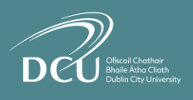About Msc In Management (aviation Leadership) in Dublin City University
Why do this course?
- Learn from academic experts, who reflect leading thinking and latest practices through their teaching, drawing on their continuing research from work with organisations.
- Develop a substantial personal network of business contacts across the industry from amongst your fellow students as well as previous graduates of the programme.
- Attend lectures part-time by block release over two days on each month of the academic term, minimising disruption to your work and personal life.
- Avail of a participatory and action-learning teaching approach consisting of case studies, problem-solving, participant experience and class discussion.
- Write a substantial research dissertation that will analyse and seek solutions to issues in contemporary aviation.
- Home to the Dublin Aviation Institute, DCU has built a strong reputation within the aviation industry since launching the innovative BSc in Aviation Management (with Pilot Studies) in 2009, which has grown in stature and influence in the industry.
- DCU Business School is accredited by AACSB, a standard reached by only 5% of business schools worldwide reflecting its established international reputation for high quality graduates.
- Assessment of each module will be by competency test, continuous assessment (including project work) or a combination of these elements. There are no final exams.
Careers
With the ever increasing emphasis on delivering excellence in aviation, there will be important roles for talented and qualified individuals. The aviation industry is expanding in Ireland and internationally. Students of the programme have been drawn from management and senior management mainly in the aviation industry and will be seeking to accelerate their careers after graduation.
Academic qualification equivalents
- Typically, you need a First Class Bachelor’s degree from a recognised top ranked university and/or affiliated colleges with a minimum of 60% average across all semesters. Students who have studied at a lower tiered institution may be considered with an overall average mark of 65% or above.
English language requirements (one of the below):
- IELTS for Postgraduate Taught Programmes: Overall score of 6.5 or above, with no less than 6.0 in any one skill. Additionally DCUBS require 6.5 in Speaking and Writing.
- TOEFL: Total Score of 92. DCU Business School additionally requires all section scores 21 or above.
- PTE Academic: Minimum score of 63, with no section score below 59
Dublin City University Highlights
| University Type |
Public University |
| Campus Setting |
Urban |
| Establishment Year |
1975 |
| No. of Campuses |
3 |
| No. of Residence Halls |
3 |
| International students |
2,337
71% in UG, 29% in PG courses |
| Research Funding |
~35 million EUR |
| Cost of Attendance |
~22,500 EUR |
| Applications Accepted |
Online/Offline |
| Work-Study |
Available |
| Intake Type |
Semester wise |
| Mode of Program |
Full time and online |
Dublin City University Average Tution fees And Other Expenses
Foreign students who wish to enrol at Dublin City University must be aware of the associated costs in order to budget appropriately and apply for scholarships when needed. The tuition costs for well-known programmes and other expenses related to studying in Ireland are covered below.
Tuition Fee for Dublin City University
Here are the details of the UG and PG fees for international students planning to study at any of the following faculties.
| Programs |
UG (EUR) |
PG (EUR) |
| Engineering |
15,000 |
17,000 |
| Business |
14,000 |
16,000-19,000 |
| Humanities |
15,000 |
15,000 |
| Science |
15,000 |
15,000 |
| Education |
12,600 |
13,700 |
Dublin City University Cost of Living
The cost of living here includes monthly expenses an international student would require to study at Dublin City University:
| Expense |
Monthly Cost (EUR) |
| Rent (On-campus) |
692-1216 |
| Rent (Off-campus) |
850-1300 |
| Food |
250 |
| Travel |
132 |
| Books and Materials |
75 |
| Medical |
45 |
| Miscellaneous |
178 |
| Total |
Approximately 2,222 |
